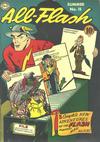California is an interesting state. We just re-elected Republican Governor Arnold Schwarzenegger 55% to 39%, but also re-elected Democratic Senator Dianne Feinstein 60% to 35%. All but one of the remaining state offices went to Democrats (some by larger margins than others).
The Governator is talking about a mandate. Politicians always do that when they win. 55% is a bit shaky, but with ~15 percentage points between him and Angelides, he’s at least more justified in claiming it than a certain Republican winner two years ago who only had a three-point lead.
Meanwhile Congress has returned to its natural state—namely, with at least one house controlled by the party not holding the Presidency—as the Democrats have taken back the House for the first time in 12 years. There’s an analysis in the Los Angeles Times suggesting that the Republicans’ mistake was in focusing too heavily on their base over the last few years and alienating the center.
Schwarzenegger is actually a good example of this. He’s a Republican, but a moderate one. During the 2003 recall election, the Republican party actually ran a second candidate, Tom McClintock, because Arnold wasn’t Republican enough. Admittedly you can chalk some of it up to name recognition and charisma, but the moderate Schwarzenegger not only won the recall handily, he had no problem holding onto the office this year when California voted overwhelmingly for Democrats.
Representative Nancy Pelosi, practically guaranteed to be the next speaker of the House, promised “to lead the most honest, the most open and the most ethical Congress in history” [note: originally linked to Forbes] and run things in a more bipartisan way than the Republicans have for the past 12 years. I’m jaded enough to say I’ll believe it when I see it, but encouraged enough that I think there’s at least a chance they will.
The real shocker, though, is Donald Rumsfeld stepping down as Secretary of Defense. I think it’s long overdue—this administration has generally rewarded loyalty over competence, and I’ll agree with many that the wars in Iraq and Afghanistan have been mismanaged. Here’s hoping Robert Gates, if confirmed, does a better job.
 Two months ago I picked up a copy of the comic book All-Flash #15 (Summer 1944), published during the thick of World War II. In the bottom margin of each page is a slogan, in rhymed couplet form, on how children could help with the war effort:
Two months ago I picked up a copy of the comic book All-Flash #15 (Summer 1944), published during the thick of World War II. In the bottom margin of each page is a slogan, in rhymed couplet form, on how children could help with the war effort: I caught a
I caught a 